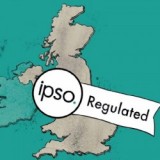 A newspaper and its sister website have been rapped by the press watchdog after wrongly claiming that a man had illegally donated sperm to almost 50 women.
A newspaper and its sister website have been rapped by the press watchdog after wrongly claiming that a man had illegally donated sperm to almost 50 women.
The Independent Press Standards Organisation has upheld a complaint over a Daily Record and Glasgow Live story, supplied by a news agency, which reported that an unlicensed sperm donor had “admitted” to fathering 22 children.
The reported included a warning from fertility experts, describing his actions as illegal and saying they carried “serious medical and legal risks.”
The donor, who used the pseudonym ‘Anthony Fletcher’ when being interviewed, took exception to the piece, claiming the publications had misinterpreted the law because he was not “procuring” or “distributing” sperm as a third party without a licence.
Complaining under Clause 1 (Accuracy) of the Editors’ Code of Practice, Mr Fletcher said that the publications had not taken care to check this claim or put it to him prior to publication, adding it was therefore also untrue to state that he had “confessed” or “admitted” to acting illegally.
He said that the article’s use of the term “black market” also wrongly implied illegality, and incorrectly suggested that he had charged for his sperm, while it was inaccurate for the article to state that he had “told the Daily Record” his account because he had been interviewed by a journalist with no connection to the publication.
The Record said the original copy provided to it by an agency had referred to the Human Fertilisation and Embryology Act 1990 as the basis for the claim that the complainant had acted “illegally”, and this was published in good faith.
However it conceded that it was inaccurate to state that the complainant had acted illegally by engaging in private sperm donation, or that he had admitted doing so, and offered to publish an apology on this point.
The paper said that the term “black market” had been taken from the quotation from the reproductive health specialist, and denied it was significantly misleading.
IPSO found there was a serious failure to take care over the accuracy of published information, but added it was not misleading to state that the complainant had “told” his story to the Record because he had been interviewed by a journalist who had then sold the story to the publication exclusively.
The complain was upheld, and the full adjudication can be read here.





 Follow HTFP on Twitter
Follow HTFP on Twitter